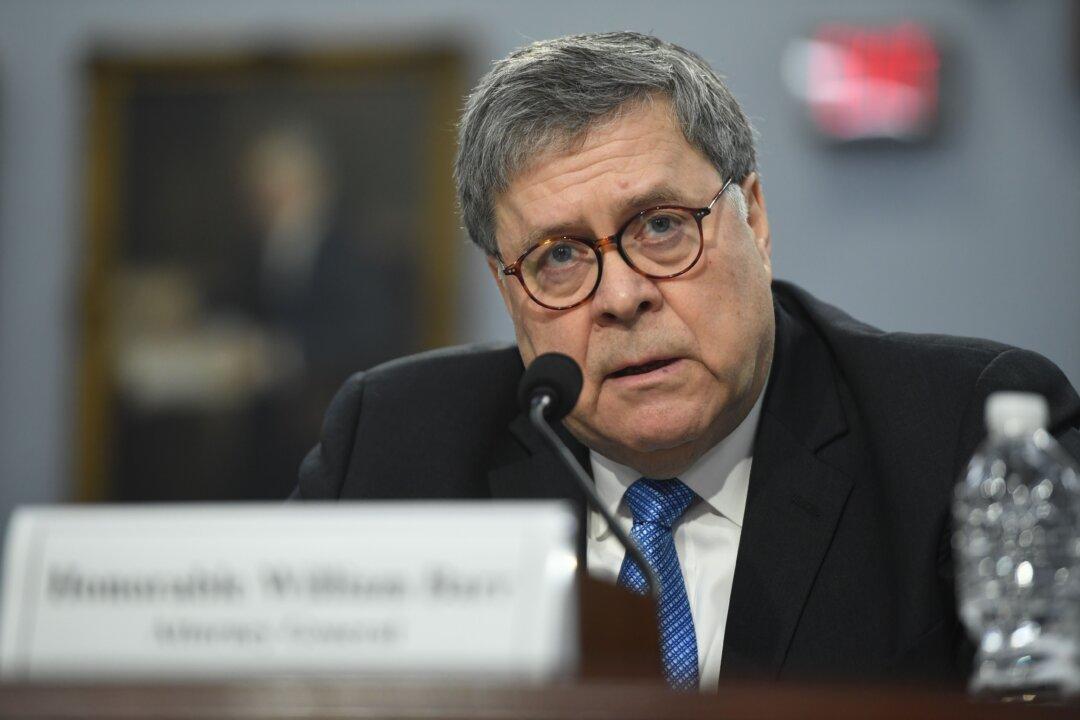The Department of Justice inspector general will complete his investigation into potential surveillance abuses against the Trump campaign by May or June, according to Attorney General William Barr.
Barr revealed the expected release of the watchdog report in testimony to lawmakers during a House budget hearing on April 9, after Rep. Robert Aderholt (R-Ala.) asked the attorney general how it came to be that a “salacious and unverified dossier” was used to spy on an American citizen.





